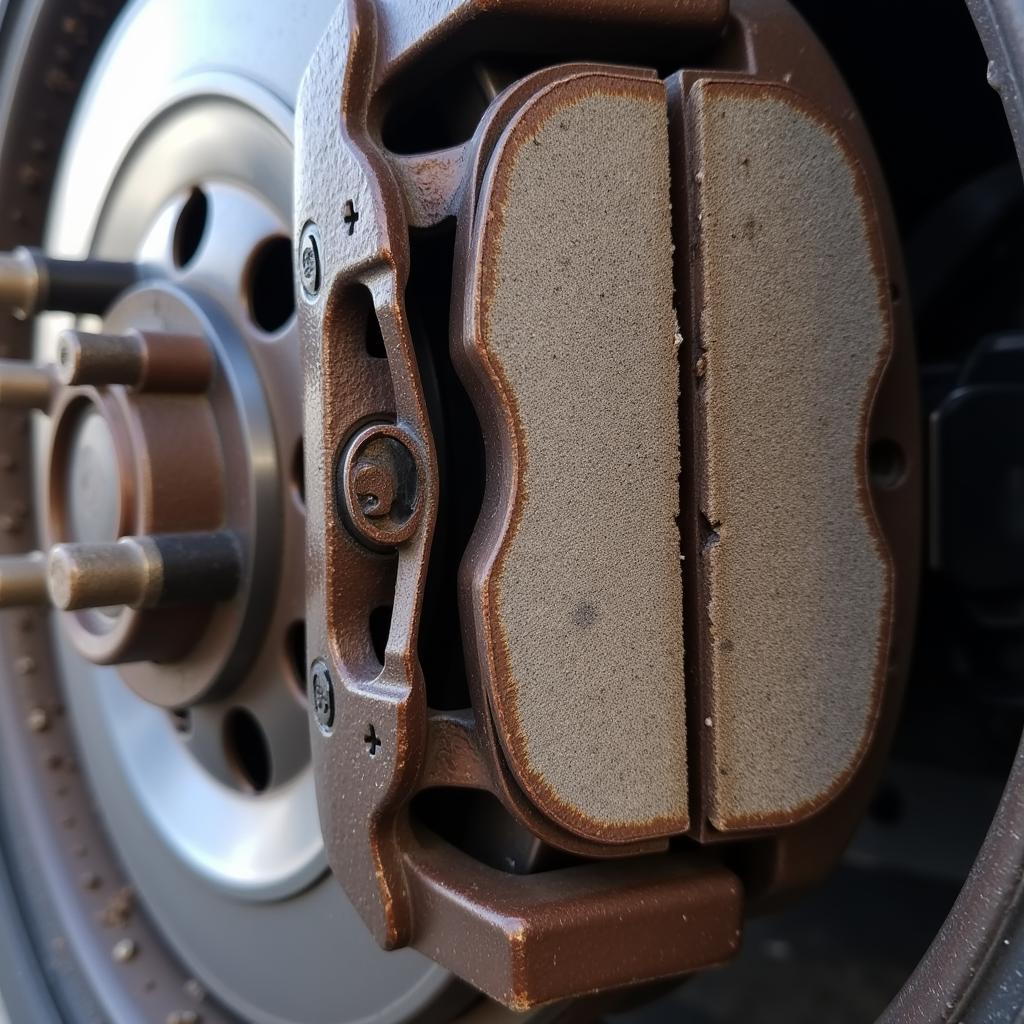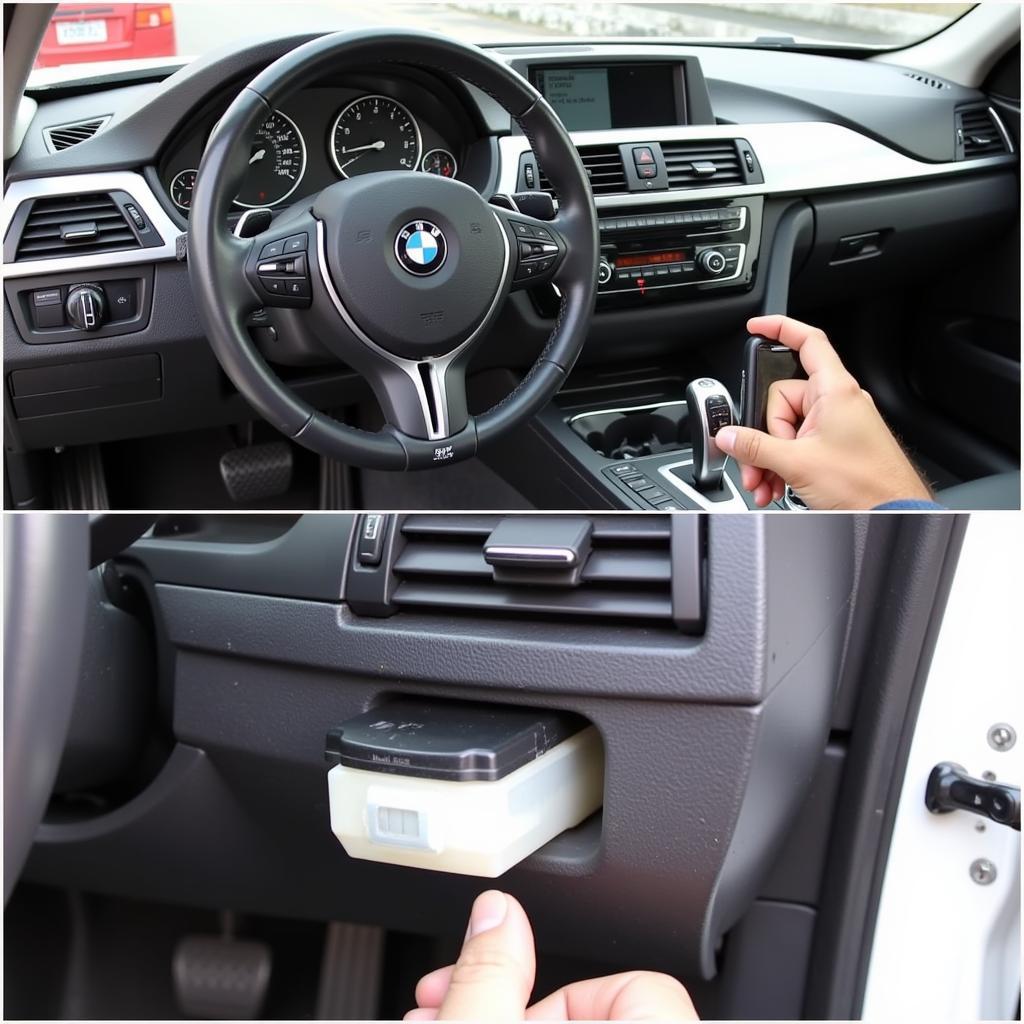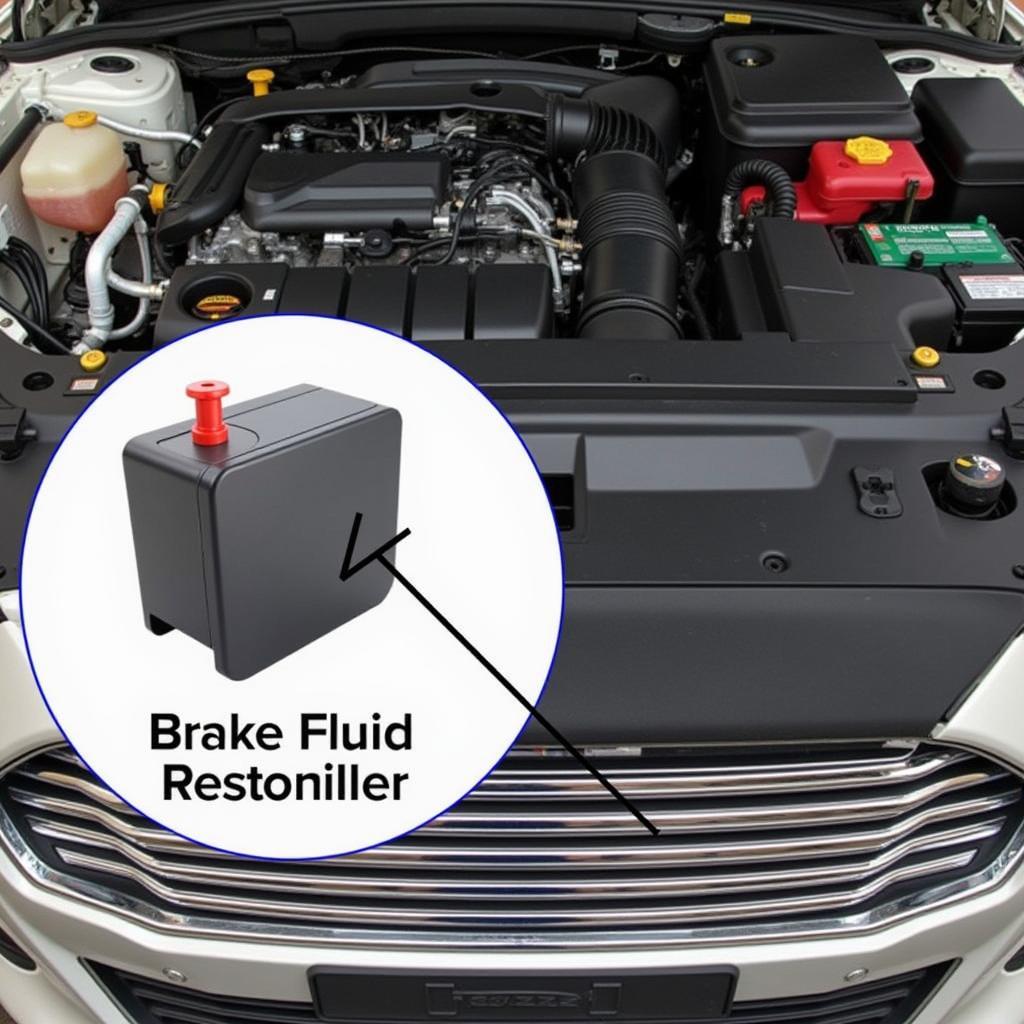The brake warning light on your dashboard is a crucial safety feature, especially in a 2014 BMW 3 series. When illuminated, it signals a potential issue within your braking system requiring immediate attention. Ignoring this warning could lead to reduced braking performance and increase the risk of an accident.
This comprehensive guide explores the common reasons behind a 2014 3 series brake warning light and provides potential solutions.
Why is My 2014 3 Series Brake Warning Light On?
Several factors can trigger the brake warning light in your BMW. Here are some of the most common culprits:
1. Worn Brake Pads
Brake pads are designed to wear down over time. As you apply your brakes, the pads press against the rotors, creating friction to slow down or stop the vehicle. This friction gradually wears down the pad material. When the pads wear thin, a sensor triggers the brake warning light on your dashboard.
Expert Insight:
“Brake pad lifespan can vary significantly depending on driving style and conditions,” says automotive engineer Mark Stevenson. “Aggressive braking and frequent city driving tend to wear pads faster.”
 Worn brake pads in a BMW 3 series
Worn brake pads in a BMW 3 series
2. Low Brake Fluid Level
Your BMW’s braking system relies on hydraulic pressure created by brake fluid to function correctly. If the brake fluid level drops below a certain point, it can trigger the warning light. This drop usually indicates a leak in the system, which requires immediate attention.
3. Faulty Brake Fluid Sensor
The brake fluid level sensor monitors the brake fluid level in the reservoir. A malfunctioning sensor might provide inaccurate readings, causing the warning light to illuminate even when the fluid level is adequate.
4. ABS Issues
The Anti-lock Braking System (ABS) plays a vital role in preventing wheel lockup during hard braking, maintaining steering control. If the ABS control module detects a problem within the system, it can trigger the brake warning light.
5. Parking Brake Engaged
While seemingly obvious, sometimes the simplest explanation is the most likely. If your parking brake is even slightly engaged, it can trigger the brake warning light. Ensure the parking brake is fully disengaged before panicking.
How to Troubleshoot a 2014 3 Series Brake Warning Light
 Checking brake fluid level in a BMW 3 series
Checking brake fluid level in a BMW 3 series
Before attempting any DIY fixes, remember safety first. If you’re not comfortable working on your car, take it to a qualified mechanic.
-
Check the Parking Brake: Ensure the parking brake is fully disengaged.
-
Inspect Brake Fluid Level: Carefully open the brake fluid reservoir and check the fluid level. If it’s low, add the recommended brake fluid for your BMW. However, simply adding fluid won’t address a leak. Consult a mechanic to diagnose and repair any leaks in the braking system.
-
Inspect Brake Pads: If you’re comfortable with basic car maintenance, check your brake pads for wear. If they appear thin or you’re unsure, consult a mechanic.
Expert Insight:
“Ignoring a brake warning light can lead to more extensive and costly repairs down the line,” warns Sarah Johnson, a certified mechanic. “Addressing the issue promptly ensures your safety and protects your investment.”
When to Seek Professional Help
If you’ve checked the basic troubleshooting steps and the warning light persists, or if you suspect a more complex issue like a faulty ABS module, seeking professional help is crucial. A qualified mechanic can diagnose the problem accurately using specialized equipment and recommend the appropriate course of action.
Maintaining Your BMW’s Braking System
Regular maintenance is key to preventing brake problems. Adhere to your BMW’s recommended maintenance schedule for brake fluid flushes and brake pad replacements. Additionally, address any unusual noises or vibrations from the brakes promptly to prevent further damage.
Conclusion
The brake warning light in your 2014 BMW 3 series is a vital safety feature, and ignoring it can have serious consequences. By understanding the common causes and following the troubleshooting steps outlined in this guide, you can address the issue promptly and ensure your safety on the road. Remember, if in doubt, always consult a qualified mechanic.

